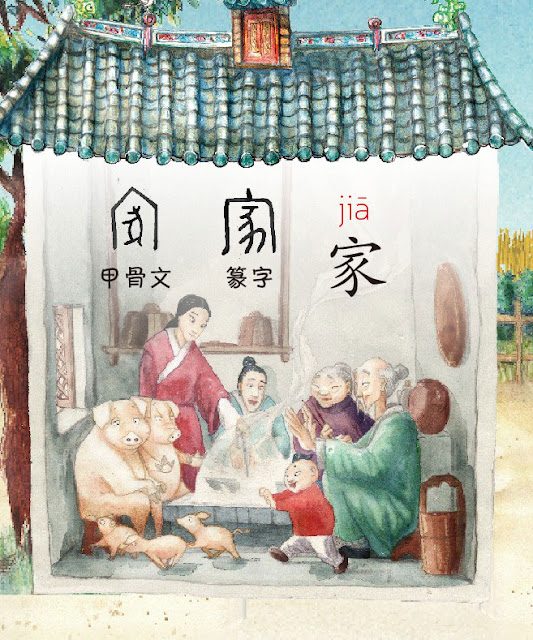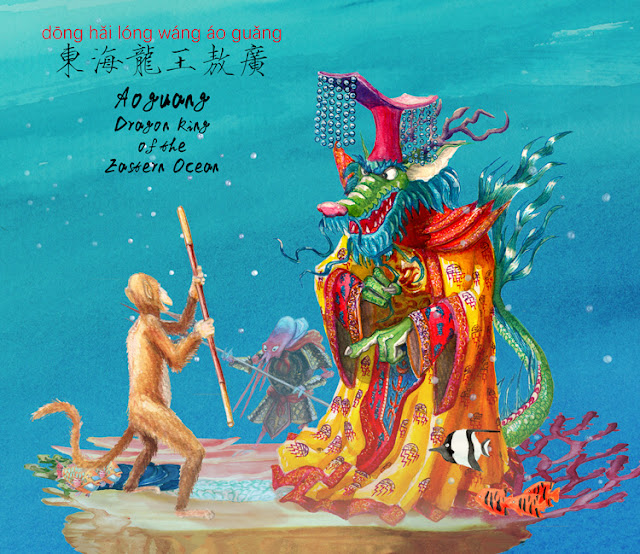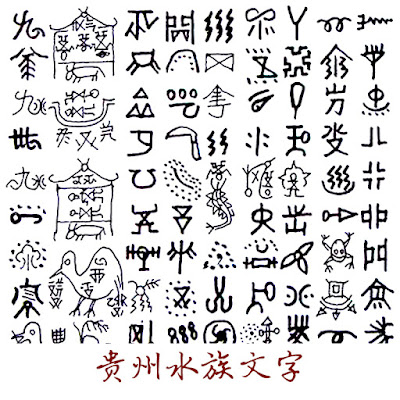家 jiā
 |
| From left to right: Oracle bone script (3,000 years ago), seal script (2,000 years ago) and regular script (modern Chinese) |
From ancient times to the present, pigs have been the centre of Chinese culture, cooking and family life. The character for home (家), is a picture of a house (房子(“宀”)) and a pig ( 猪(“豕”) ).
Pigs mark the point at which China abandoned nomadic life of hunter gatherers and settled down in one place to farm the land.
Pigs were also the only animal remains discovered in Shang dynasty burial grounds. This is because in ancient times pigs not only were eaten for food, but were also sacrificed at weddings, funerals, and festivals, they were a symbol of social status and wealth: Pigs were power!
In the beginning, the meaning of “家” was ‘family’, that is the smallest social unit, that is people with close family relations living under one roof (parents, children and grandparents).
From this the meaning of home was extended to mean a common relationship between people, for example clan (家族 jiā zú) or country (國家 guó jiā).
Then it was extended to those with the same beliefs or religion, for example Taoists ( 道家 dào jiā) and Buddhists ( 佛家 fó jiā).
So if you are a pretty high up member of a certain school of thought, then you’re an ‘expert’ (專家 zhuān jiā). And you have specialist knowledge of a certain subject.


Comments
Post a Comment